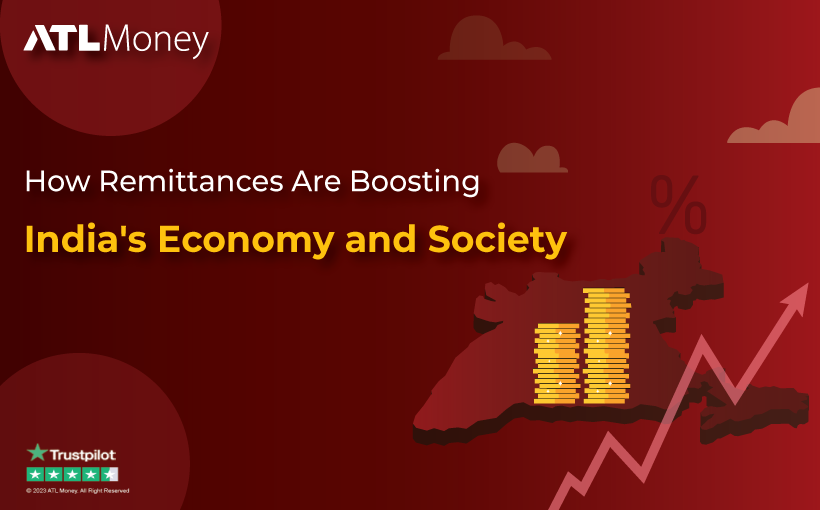Hey there, money-savvy friends! Do you know that every year, billions of dollars are sent by migrants living abroad to their home countries?
One of the biggest recipients of these remittances is India, and in this blog article, we’ll examine how they affect India’s economy and society.
We’ll also demonstrate how to send money to India from the UK (and other countries) through the ATLMoney international money transfer platform.
Remittances 101 – A Quick Overview
If you’re new to the world of remittances, don’t worry – we’ve got you covered. At its most basic level, a remittance is just a money transfer from someone working abroad to their home country. This money, which is often handed to family or close friends, can be used to pay for a variety of needs, from bigger ones like education or company startup to daily essentials like food and accommodation.
Many households in underdeveloped nations, where there may be a lack of employment prospects and pay, rely heavily on remittances as a source of income.
In 2021, total global remittances were estimated at $781 billion and have further risen to $794 billion in 2022”
The are reports that remittances to poor nations hit a record high of $540 billion in 2020, underscoring the significance of these payments as a tool for eradicating poverty and fostering economic growth.
The Power of Remittances in India’s Economy
India is one of the countries that receive the most remittances in the world, with Indian workers overseas expected to send home $83 billion in 2020. In rural locations where access to conventional financial services may be limited, these funds are especially important for assisting households and communities there.
But, the effects of remittances extend beyond individual households. Remittances play a significant role in India’s total economic expansion. Remittances were a key source of foreign exchange profits in 2019-2020, with an estimated 3% of the country’s GDP attributable to them, according to a Reserve Bank of India report.
Moreover, remittances are essential to bolstering India’s foreign financial position and boosting the country’s balance of payments by reducing the trade deficit.
Remittances can also aid in lowering poverty and enhancing social welfare because they are frequently used to fund housing, healthcare, and healthcare initiatives.
The social fabric of Indian society, however, is likely where remittances have the most significant impact. Remittances contribute to social cohesion by assisting families and communities all around the nation. Since many migrant workers are from rural areas and send money home to support their families and communities, they also aid in bridging the gap between urban and country areas.
The Social Impact of Remittances in India
Not only do remittances strengthen India’s economy, but they also promote social advancement. Remittances, for instance, assist in lifting families out of poverty by giving them a reliable stream of money that can be utilized to meet their most basic requirements, such as food, shelter, and healthcare. Remittances can also promote education by helping families pay for school fees and other associated costs.
Sending Money to India from the UK (and Beyond) with ATLMoney
Now that you know about the power of remittances, let’s talk about how you can be part of it!
Sending money from the UK to India is simple and inexpensive thanks to ATLMoney’s international money transfer network (and beyond). You can rely on ATLMoney to send your money to your loved ones safely and securely because of its excellent exchange rates and low costs. Furthermore, it’s simple and convenient because you may send money straight to a bank account or for cash pick-up at a partner store.
In conclusion, remittances are a crucial component of India’s economy and society, and you may contribute to the beneficial impact by sending money to India through ATLMoney. What are you still holding out for? Begin donating money right away to improve the lives of your loved ones in India!
